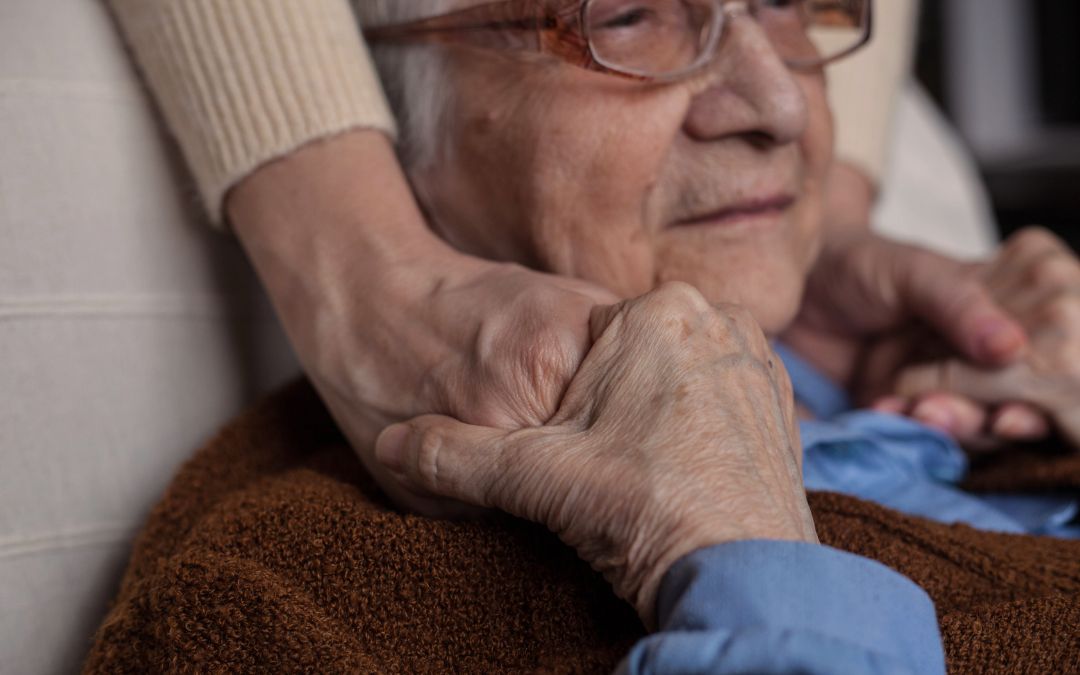If you have a loved one diagnosed with dementia, one of the first troubling symptoms you may notice is a change in communication. Dementia communication shifts can vary from your loved one searching for the correct word to not comprehending fast speech patterns or jumps in conversation.
The more communication changes, the more frustrating even simple interactions can be. Practicing empathy and understanding can ease the strain on your relationship as a caregiver. Use the following six tips to improve dementia communication throughout all stages of progression.
1. Understand the Stages of Dementia
Learning how to communicate successfully, both verbally and nonverbally, is crucial to maintaining your loved one’s quality of life. Understanding the three stages of dementia progression and the individual needs that go along with them will help you prepare and know what to expect:
- Early stage: in the beginning, the changes are subtle, as the onset is often gradual. You’ll begin to notice your loved one searching for words and having bouts of forgetfulness.
- Middle stage: at this stage, the signs become more noticeable and will present as word mix-ups, repetition of questions and significant lag time in comprehension.
- Late stage: upon reaching this point in the disease progression, communication will be laborious. As memory is also affected, your loved one will lose words and their train of thought as well as have difficulty following the flow of conversation.
2. Keep It Straightforward
Speak in short and direct sentences, and make sure to enunciate clearly. Especially in the early stage, you can avoid miscommunications by speaking slowly. Try not to make leaps in logic that may be difficult to follow. Take your time conversing and be patient, knowing that it may take longer to get your point across.
Another common issue that may arise is your loved one reverting to their first language. If English is their second language (and if you speak their first language), consider using their birth language or responding to them in that language when they use it. Avoid using slang or idioms that may be confusing.
3. Use Meaningful Body Language
Much of our communication is nonverbal, so while your loved one may have difficulty speaking and comprehending, they’ll still understand tone, body language and eye contact. According to BetterHealth, body language accounts for 55 percent of communication and is a key component of dementia communication.
Make sure to keep your mannerisms open, friendly and understanding. When there’s a breakdown in communication, your loved one will be less likely to get frustrated or shut down if you respond with patience and kindness. Avoid crossing your arms, dismissive facial expressions or visible frustration. Holding hands with the individual can help ground them in the current conversation and serve as reassurance that they’re cared for.
4. Limit Distractions
Eliminate external distractions when communicating with dementia patients. The additional stimulus can be disorienting and extremely confusing. Make sure to shut off the radio, the television, and have only one conversation occurring at a time. This allows for your loved one to focus on the dialogue between the two of you. Sit making strong eye contact, and limit your conversation to one topic at a time. With their full attention focused on you and no background noise, it’s much easier for them to follow along.
5. Be Respectful and Empathetic
Losing the ability to easily vocalize thoughts after a lifetime of readily doing so can be defeating. Further along in the progression, dementia communication can be even more difficult and, as such, frustrating for your loved one.
To overcome this hurdle, approach every interaction with empathy and respect. Avoid using “baby talk” or condescending phrases like “Good job.” The last thing you want to do is make that person feel minimized. Losing communication abilities removes agency from an individual. You can help preserve what control they do have left by treating them with the utmost respect.
6. Remember to Take a Break
Even when utilizing the first five tips, there will be times when there’s a communication breakdown. When you’re feeling overwhelmed—take a break. Step away for a moment to gather your thoughts, take a deep breath and plan a new strategy. This is helpful for both you and your loved one. They can have a mental breather but with the reassurance that you’ll return and continue the dialogue in a calmer manner.
It’s important to be kind and forgiving to both yourself and your loved one. For further advice, refer to our article on practicing self-care as a caregiver.
Kindness is Key
When it comes to dementia communication, there’s no one right answer. However, there are correct steps that you can take to help you and your loved one understand each other. Be kind, approach every situation with sensitivity and to treat them with the respect that they deserve.
Remember, the feeling of love and support can be conveyed through body language, tone and eye contact just as easily as with words.

